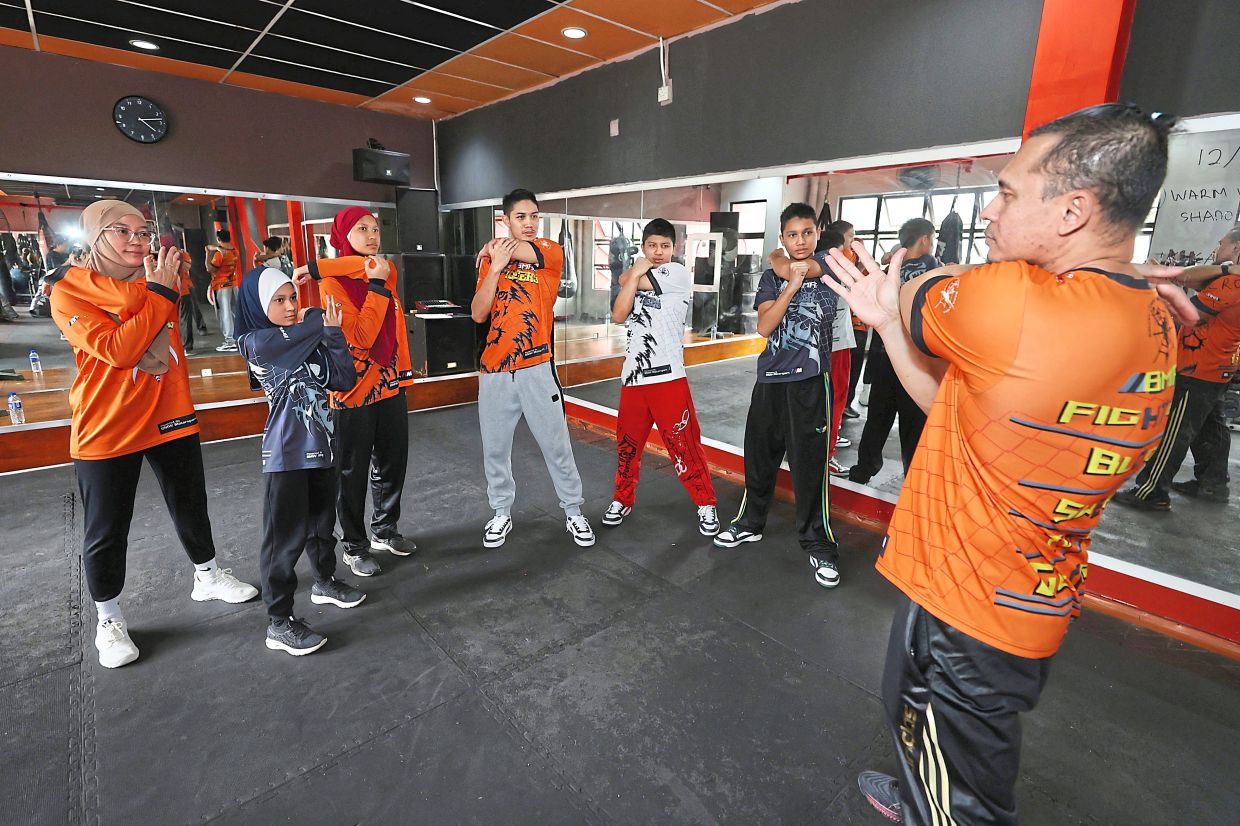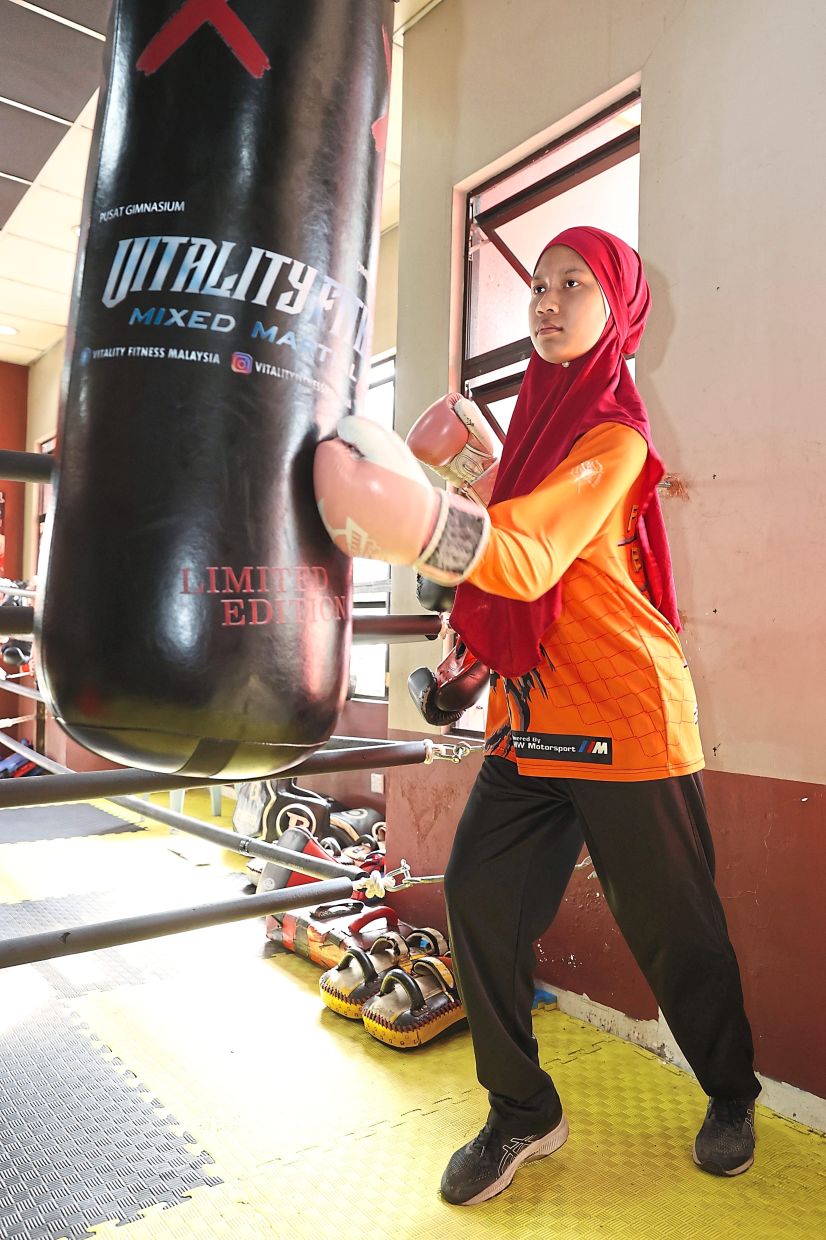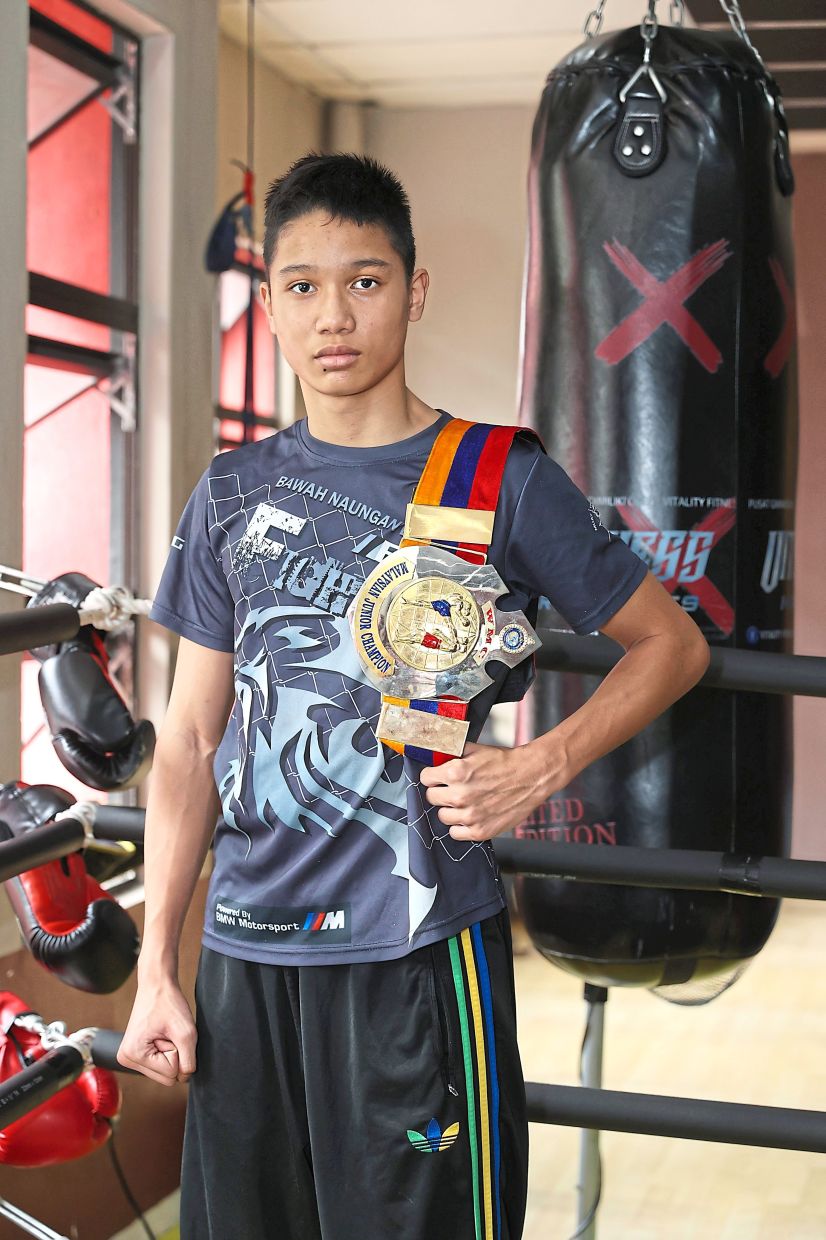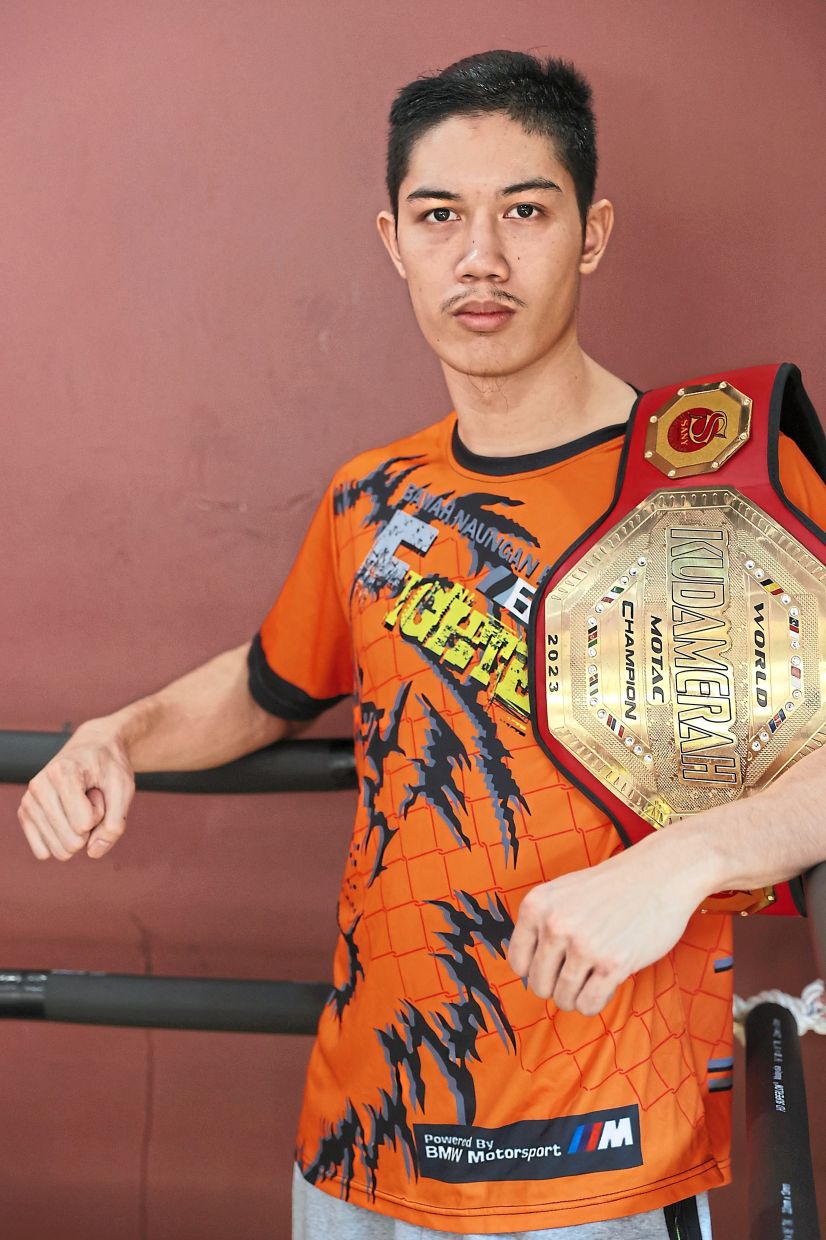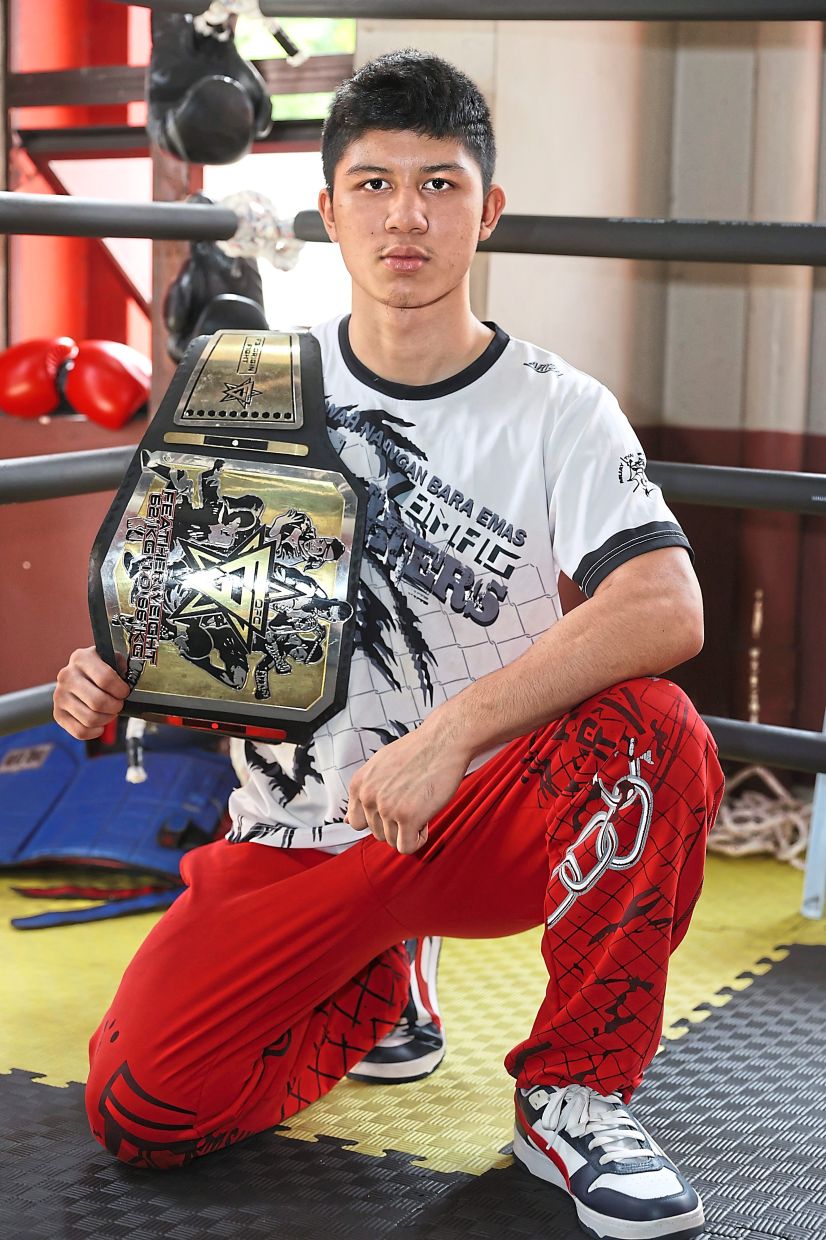The family that trains together, stays together.
For today’s young athletes, sports is no longer just about physical training; it’s a fusion of science, technology and strategy, says combat sports athlete A’mmarul Shafiq Ubaidillah, 24.
“The rise of sports digital learning and structured athletic programmes has transformed how we train, recover and compete,” says the five-time national Muay Thai champion and two-time kickboxing national champion who represented Malaysia in the 2022 IFMA (International Federation of Muaythai Associations) World Grand Slam.
For A’mmarul and his two younger brothers, Arysh Shaddad Ubaidillah, 19, and Adhem Syf Ubaidillah, 15 - among Malaysia’s most promising Muay Thai fighters - this evolution has shaped their approach to sports in ways their father, former Malaysian bodybuilding champion Ubaidillah Nasri Abdul Latiff, 48, never had access to during his competitive years in the early 2000s.
For Ubaidillah, training was straightforward and discipline-driven. Athletes were expected to follow their coach’s instructions without question, relying solely on their coach’s experience rather than external knowledge.
“Back then, we had just one coach and one style of training. We didn’t question it, we just followed,” explains the former architect who left his government job in 2010 to start the Rockafella Fitness Centre.
Initially a general gym in Selayang, Selangor, it pivoted to a Muay Thai centre during the pandemic, inspired by his children’s growing passion for combat sports.
Today, his five children, including daughters Qhadra Dhalynna Ubaidillah, 18, and Qharynna Dhaneen Ubaidillah, 13, like many younger athletes, have a different approach to sports.
While his coaching remains integral, they also supplement their training with online research, sports analytics and diverse training methodologies.
For Gen Z athletes, there is an increasingly significant role of digital learning and opponent analysis (through YouTube and sports analytics software, combining techniques from multiple sources, and learning from both local and international fighters), science-based training and recovery, and structured pathways to professionalism.
They can learn from multiple sources, blending styles and techniques to stay ahead in an increasingly competitive field.
Standing at 186cm, A’mmarul is known for his technical precision and powerful kicks. The eldest sibling, he was the first in the family to pursue Muay Thai professionally.
“I was influenced by my dad and initially took up bodybuilding, but I transitioned into Muay Thai and developed a love for it,” he says.
With 70 professional and semi-pro fights in just three years, A’mmarul, who now runs the family’s gym, acknowledges that no fight is ever easy.
“Each opponent is different, so you have to be prepared for the unexpected. Even though my brothers and I train under the same coach, our dad, we all have different fighting styles.”
Muay Thai is known as “the art of eight limbs” with four essential weapons, unlike traditional boxing, which primarily uses the fists. In Muay Thai, there are two fists for punching, two elbows for close-range strikes, two knees for clinch position strikes, and two shins for powerful kicks and defence.
“While we can use all these aspects, fighters often develop their own style, focusing on certain techniques. That’s what makes Muay Thai unique: it allows you to express yourself in the ring. Your fighting style is a reflection of who you are,” says A’mmarul.
Because of this, their training is highly individualised.
A’mmarul adds that they each follow their own training programme, which includes technical, tactical and strength conditioning sessions, and train three to four times a day.
They also have personalised diet and nutrition plans, tailored to their weight categories.
Second brother Arysh, known for his sharp elbows and aggressive fighting style, reveals that his journey into combat sports began for a personal reason: to counter bullying.
“I was bullied in school, and that’s when I told my dad I wanted to learn self-defense. I started Muay Thai, and after just four years, I’d already completed 65 professional and semi-pro fights,” says the Sukma 2024 Muay Thai gold medallist who won Selangor’s first-ever Muay Thai gold medal and represented Malaysia at the 2022 IFMA World Youth Championship.
Youngest brother Adhem, 15, known for his strong knee attacks and never-back-down attitude, reveals that his entry into Muay Thai was also fuelled by a desire to defend himself.
“I was a skinny kid, and this huge guy in school used to make fun of me. So I started bodybuilding and Muay Thai to bulk up and defend myself. Now, I fight in tournaments for my family, who has always supported me,” he says.
As a Muay Thai champion in the 45kg category, he has already competed in over 40 competitive fights.
Meanwhile, sister Qhadra is preparing for the amateur women’s Muay Thai competition in Sukma 2026 with the Selangor team.
“This will be my first official competition, so I’m pretty excited about it,” she shares.
However, balancing sports and studies has been a challenge.
“I had to put Muay Thai training on hold for exam preparations, but I still did total body exercise classes twice a week to maintain my fitness. Now that my exams are over, I can resume full training,” she says.
Despite being an amateur fighter for now, Qhadra aspires to become a full-time professional athlete like her brothers.
“As a hijab-wearing Muslim woman fighter, I hope to pave the way for more young Malaysian women in combat sports.”
A self-described introvert, she finds strength in training alongside her family.
“We can train and spar together. I’m quite a homebody, but seeing my brothers excel in sports motivates me to push myself as well.
“Muay Thai is beneficial for both men and women. It builds confidence and teaches self-defense. It’s not an easy sport as it requires a high level of commitment, dedication and discipline.
“But my dad always says that if you can handle Muay Thai, you can handle anything in life because it teaches patience, consistency and resilience, which are values you need in life,” she adds.
The youngest in the family, Qharynna, isn’t just into Muay Thai; she has a passion for strength sports.
While her siblings fight in the ring, Qharynna fights against time and endurance.
At 11, she won an open planking challenge, defeating adults with a record of one hour and 30 minutes.
Inspired by her father’s workouts, she kept improving, eventually achieving a personal best of three hours and 30 minutes.
Her ultimate goal is to break the world planking record of nine hours and 38 minutes, currently held by an adult male.
“To me, planking is about challenging myself to go beyond what I thought was possible,” she says.
Amidst all these achievements, one thing remains unchanged: the sacrifices required to be a champion.
“Raising a family of athletes has its proud moments, like when our children win gold medals. But it also involves sacrifices,” says their mother Rohani Yusuf, 47.
She ensures that her children stay disciplined, healthy and balanced.
“When they were younger, we could take spontaneous trips or go out for meals. Now, their schedules revolve around training and tournaments.
“They can’t simply eat whatever they want and their diets are carefully planned based on their weight categories.”
Rohani adds that unlike most young people, her children don’t spend their weekends hanging out with friends and they don’t have much time for hobbies.
The boys have two tournaments every month and train three to four times a day.
To them Muay Thai isn’t a hobby, it’s their lifestyle, she explains.
Ubaidillah reflects on the evolution of sports across generations.
“With technology, today’s athletes learn faster, but they also face new pressures, including social media expectations and the constant need to prove themselves.
“In my time, the emphasis was mainly on hard work and loyalty to one coach.
“Now, while hard work is still crucial, it’s also about being adaptable, learning from multiple sources, and constantly evolving,” he says.
Yet, at its core, he believes sports is still the same.
“It’s still about discipline, resilience, and pushing past your limits,” he emphasises.










